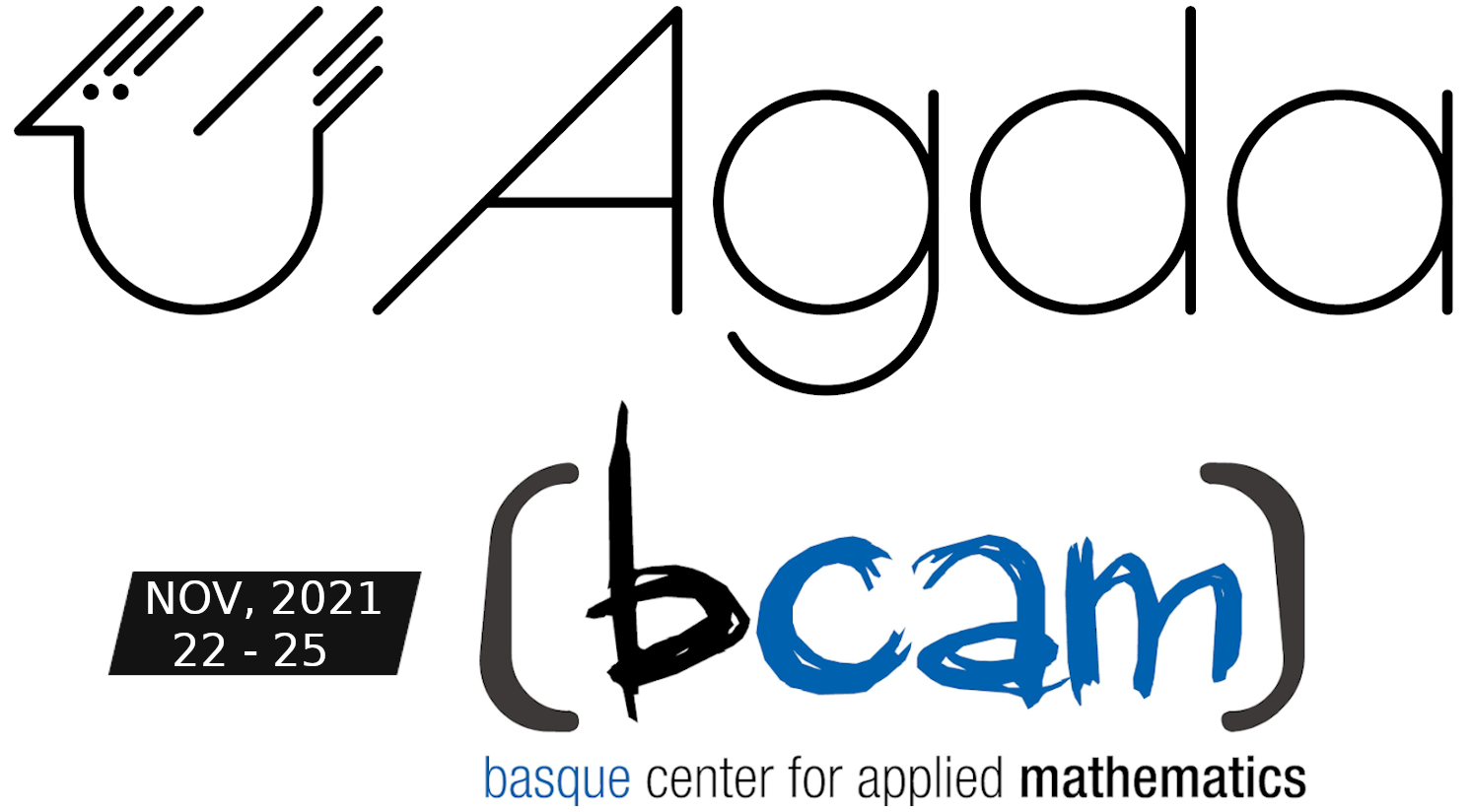Tutorial
- Introduction
- Monday 22 Nov 15:00 - 17:30, Original Completed Video
- Tuesday 23 Nov 15:00 - 16:30, Original Completed Video
- Wednesday 24 Nov 15:00 - 17:30, Original Completed Video
- Thursday 25 Nov 15:00 - 17:30, Original Completed Video
Tutorials.Tuesday
{-# OPTIONS --allow-unsolved-metas #-}
open import Tutorials.Monday
module Tutorials.Tuesday where
-----------
-- Pi and Sigma types
-----------
module Product where
-- The open keyword opens a given module in the current namespace
-- By default all of the public names of the module are opened
-- The using keyword limits the imported definitions to those explicitly listed
open Fin
open Vec using (Vec; []; _∷_)
open Simple using (¬_)
variable
P Q : A → Set
-- Pi types: dependent function types
-- For every x of type A, the predicate P x holds
Π : (A : Set) → (Pred A) → Set
Π A P = (x : A) → P x
infix 5 _,_
-- Sigma types: dependent product types, existential types
-- For this x of type A, the predicate P x holds
record Σ (A : Set) (P : Pred A) : Set where
-- In the type P fst, fst refers to a previously introduced field
constructor _,_
field
fst : A
snd : P fst
open Σ public
-- By depending on a boolean we can use pi types to represent product types
Π-× : Set → Set → Set
Π-× A B = Π Bool λ where
true → A
false → B
-- By depending on a boolean we can use sigma types to represent sum types
Σ-⊎ : Set → Set → Set
Σ-⊎ A B = Σ Bool λ where
true → A
false → B
-- Use pi types to recover function types
Π-→ : Set → Set → Set
Π-→ A B = Π A λ where
_ → B
-- Use sigma types to recover product types
Σ-× : Set → Set → Set
Σ-× A B = Σ A λ where
_ → B
infix 5 _×_
_×_ : Set → Set → Set
_×_ = Σ-×
-- 1) If we can transform the witness and
-- 2) transform the predicate as per the transformation on the witness
-- ⇒) then we can transform a sigma type
map : (f : A → B) → (∀ {x} → P x → Q (f x)) → (Σ A P → Σ B Q)
map f g (x , y) = (f x , g y)
-- The syntax keyword introduces notation that can include binders
infix 4 Σ-syntax
Σ-syntax : (A : Set) → (A → Set) → Set
Σ-syntax = Σ
syntax Σ-syntax A (λ x → B) = Σ[ x ∈ A ] B
¬∘ : Pred A → Pred A
¬∘ P = ¬_ ∘ P
-- These can be proven regardless of A
¬∃⇒∀¬ : ¬ (Σ A P) → Π A (¬∘ P)
¬∃⇒∀¬ = {!!}
∃¬⇒¬∀ : Σ A (¬∘ P) → ¬ Π A P
∃¬⇒¬∀ = {!!}
∀¬⇒¬∃ : Π A (¬∘ P) → ¬ Σ A P
∀¬⇒¬∃ = {!!}
-- Works in classical, not in constructive mathematics
postulate ¬∀⇒∃¬ : ¬ Π A P → Σ A (¬∘ P)
-- Show that ≤ is antisymmetric
≤-≡ : n ≤ m → m ≤ n → n ≡ m
≤-≡ x y = {!!}
-- By using n ≤ m instead of Fin m we can mention n in the output
take : Vec A m → n ≤ m → Vec A n
take xs lte = {!!}
Fin-to-≤ : (i : Fin m) → to-ℕ i < m
Fin-to-≤ i = {!!}
-- Proof combining sigma types and equality
≤-to-Fin : n < m → Fin m
≤-to-Fin lt = {!!}
Fin-≤-inv : (i : Fin m) → ≤-to-Fin (Fin-to-≤ i) ≡ i
Fin-≤-inv i = {!!}
≤-Fin-inv : (lt : Σ[ n ∈ ℕ ] n < m)
→ (to-ℕ (≤-to-Fin (snd lt)) , Fin-to-≤ (≤-to-Fin (snd lt))) ≡ lt
≤-Fin-inv lt = {!!}
